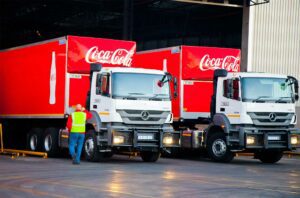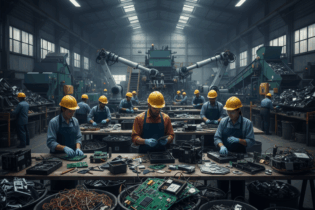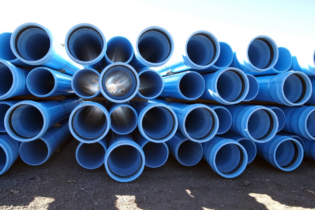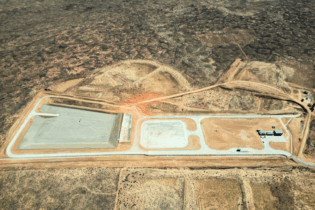Like many companies that make products we all love, Coca-Cola’s packaging has contributed to the global packaging problem; however, the beverage multinational is taking bold action to help solve this challenge.
Recognising that packaging accounted for 30% of its overall carbon footprint, Coca-Cola was determined to incorporate more recycled and renewable material into its production. The company also set out to increase its use of reusable packaging and invest in local recycling programmes. In 2018, The Coca‑Cola Company announced its World Without Waste vision, which committed to an ambitious goal: to collect and recycle the equivalent of a bottle or can for every one sold by 2030, reaching a 100% collection and recycling rate of all its packaging. The vision also includes ensuring all packaging is 100% recyclable by 2025 and that its PET bottles are made with an average of 50% recycled content. Coca-Cola’s global goal is to be a net-zero carbon entity by 2050. In 2022, the company announced a new global reusable packaging goal. By 2030, it aims to have at least 25% of its beverages sold by volume worldwide in refillable/returnable glass or plastic bottles or fountain dispensers with reusable packaging. This could result in approximately 20% less virgin plastic derived from fossil fuels worldwide than today – depending on business growth. So, how is Coca-Cola planning to bring its World Without Waste vision into fruition? Simply put: by investing in new recycling technologies; packaging improvements such as lightweighting; different business models such as refillable, dispensed and fountain systems; and the development of new, renewable materials.Creating sustainable collection and recycling model
In Africa, Coca-Cola has had much success with a voluntary end-producer responsibility model, where the beverage and packaging industries come together to promote and finance the recycling of PET plastic, taking responsibility for recovering and recycling the material. This is driven through the PET Recycling Company (PETCO), funded by industry through a levy on PET resin and in-aid grants. The PETCO model has proved so successful that Coca-Cola is now replicating it across Africa and other parts of the world. In South Africa, PETCO has driven the in-country recycling of PET plastic bottles up from 14% in 2005 to over 65% of beverage PET bottles in 2018. This has put South Africa ahead of developed markets, such as the EU (2016: 60%) and US (2016: 28.4%) when it comes to PET collection and recycling rates. A direct consequence of the financial stimulus provided by Coca-Cola, together with industry, over the past decade, the recycling ecosystem in South Africa has grown into a thriving R250 million/annum industry, providing income opportunities for more than 64 000 people, and creating small, entrepreneurial waste collection businesses along the value chain. Building on this experience in South Africa, The Coca‑Cola Company, its bottling partners, the Kenya Association of Manufacturers and other industry players, launched PETCO in Kenya, as a voluntary industry extended producer responsibility scheme in June 2018. This scheme has now also been introduced in Ethiopia. In Tanzania, Namibia, Mozambique, Zambia and Botswana, external recyclers have been contracted to buy post-consumer PET bottles and incentivise local collectors to recover their packaging. The strength of the PETCO model is that PET that is collected is recycled in the same country – and not exported. Voluntary systems such as these require ongoing financial support from all industry players to remain sustainable. The Coca‑Cola Company provides support in the form of a recycling fee and an annual grant paid to PETCO. Partnerships such as PETCO help create a closed-loop system that benefits the environment, serves communities and begins charting a path of shared opportunity for future generations.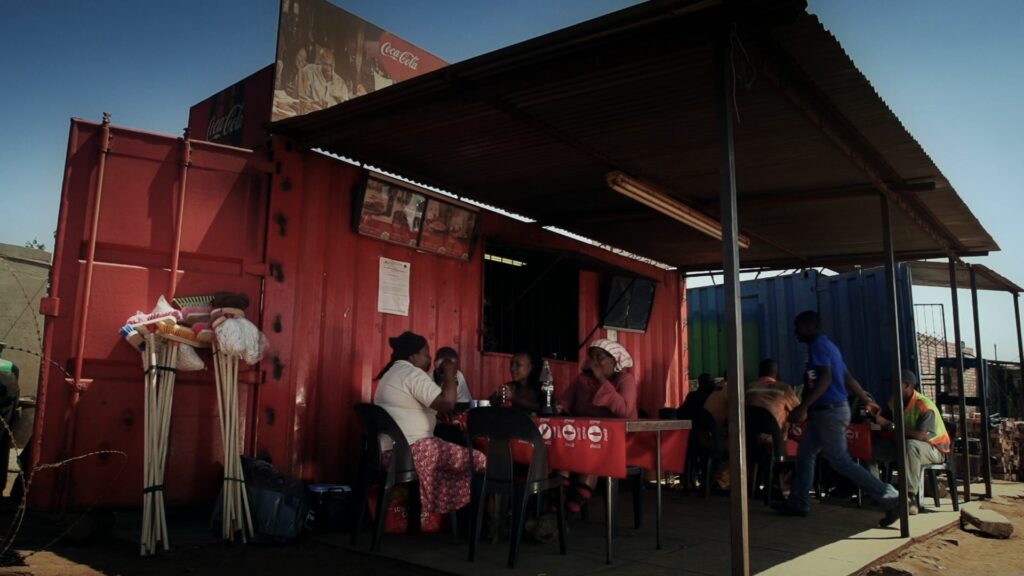
Creating a true circular economy
Whether it’s using more recycled content, reducing the amount of plastic in bottles through lightweighting, developing plant-based resins, or experimenting with ways to eliminate packaging altogether, Coca-Cola is investing in its packaging to design better bottles.Its innovation labs are looking for ways to ensure that every bottle has the opportunity of more than one life – whether the materials are used to make another bottle, a t-shirt, a carpet or furniture.
In South Africa, Coca-Cola has made remarkable progress so far, with steps including:- A 2 ℓ reusable PET bottle that is available in various regions. When returned, these bottles go through Coca-Cola’s stringent cleansing requirements and are refilled to start their following life cycle. Once the bottle reaches the end of its useable life cycle, it is repurposed into another PET bottle.
- 300 mℓ and 1.25 ℓ returnable glass bottles (RGBs) are available across South Africa – Cappy is now packaged in returnable glass.
- A 500 mℓ Bonaqua bottle is made entirely from recycled plastics.
- Sprite’s iconic green bottle is now in clear bottles to allow for greater recyclability.
Partnering across all sectors
Coca-Cola believes that no one organisation alone can solve the world’s plastic problems – hence it works with various bottling partners, governments, NGOS and communities to address the wider issue of plastics and pollution. Through programmes like regular beach and river clean-ups and other ongoing local activities, the company supports collection and recycling efforts at a local level. Across Africa, Coca-Cola has partnered with organisations that cover the entire life cycle of the package – from suppliers to innovators, collectors, recyclers, NGOs and governments. It partners with organisations such as The Ocean Conservancy, World Wide Fund for Nature (WWF) and even its competitors in an effort to support ongoing sustainability efforts. With the leadership of bottling partner Coca‑Cola Beverages Africa (CCBSA), The Coca-Cola Company launched the African Plastics Recycling Alliance with Diageo, Nestlé and Unilever to transform plastics recycling infrastructure across sub-Saharan Africa. Through the Alliance, companies will facilitate and support their local subsidiaries to engage in market-level public-private partnerships (PPPs) and industry collaborations. The Alliance will promote innovation and collaborate on technical solutions to local initiatives that will improve plastics collection and recycling. Companies will also engage with the investment community and policymakers to accelerate the development and financing of waste management infrastructure and systems, which in turn is expected to create jobs and commercial activity.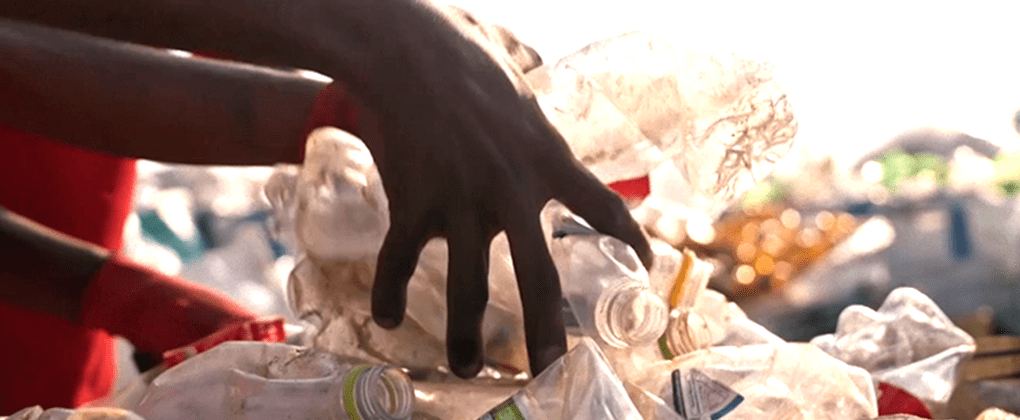
Making collection more accessible
Coca-Cola believes that an essential part of improving recycling rates is taking the consumer along on the journey. This means educating people about the best ways to collect their packaging. The company has started the process of applying its marketing expertise and assets, as well as media relationships, to drive behaviour change and change people’s waste habits – from anti-littering to separating recyclables from organic waste at their homes. It also partners with schools to develop a new generation of eco-champions to drive collection in their communities. CCBSA also drives a successful Schools Collection for Recycling Programme, which saw 866 schools collecting and creating a revenue steam from waste materials such as PET bottles, paper, plastic and cans by selling them on to be recycled. During 2018, 2 324 t of recyclable waste was collected, benefiting 700 000 learners. As part of the programme, 12 990 educators were involved in teaching learners about recycling so that they could take this recycling message home to their communities, building a culture of environmental stewardship.Sharing expertise
Coca-Cola believes that the strength of the World Without Waste strategy is that it centres on partnership – bringing people together to help turn waste into worth. As such, it is applying its convening power to bring the right partners to the table to find solutions to this global problem, through sharing expertise, resources and technology. The World Without Waste vision charts a way forward to a more sustainable world, where public, private and civic organisations work together to solve the packaging problem and turn waste into worth for future generationsof Africans.


